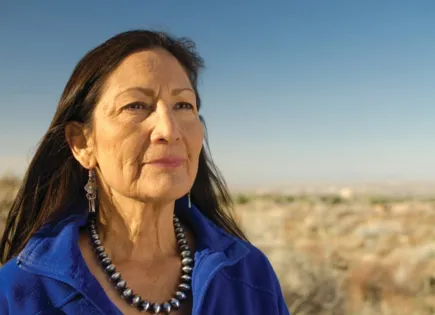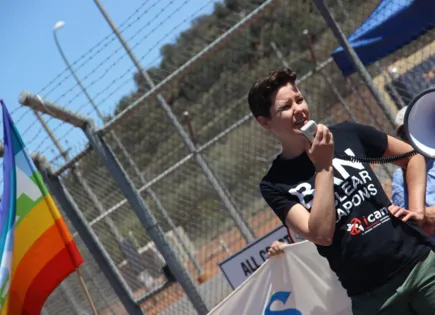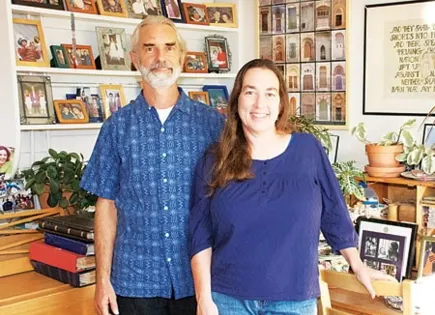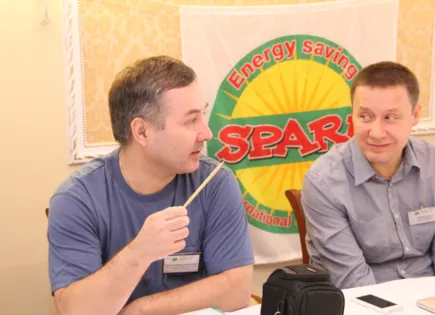The NUCLEAR-FREE FUTURE AWARDS
Deb Haaland, USA

Categories: Lifetime Achievement and Special Recognition – 2020
Deb Haaland was one of the first Native American deputies elected to the US Congress in 2018. Whether it is climate change or Covid 19 – the voice of Democrat Deb Haaland is well heard in Washington. She is currently one of the campaigners for an extension of the Radiation Exposure Compensation Act (RECA) of 2019: the financial compensation is to include uranium miners after 1971, as well as the Trinity Downwinders. She was awarded a “Special Recognition” for her commitment.
There are people who cannot help themselves. If they see an injustice, they intervene. Writing, shouting, arguing, singing, painting, writing poetry, setting to music, demonstrating, admonishing, getting in the way. Artists and activists are above all, sometimes they make it into politics. Like Deb Haaland, for example.
She is a member of the Laguna Pueblo in the state of New Mexico. Pueblos are the name given to the tribal communities on the Colorado Plateau whose traditional form of housing consists of multi-story clay buildings. Laguna, founded in 1699, is located east of Grants, the city that calls itself “Uranium Capital”, there is a “Uranium Café” there. Right next to the Pueblo, the Anaconda company began prospecting uranium in 1952; the land was leased from the Keres-speaking Laguna people; the residents learned nothing of the dangers. By February 1982 the three open pits of the Jackpile Mine were exhausted; in the 30 years the Anaconda Company had moved 400 million tons of rock, 25 million of which contained enough uranium to produce yellowcake. Radioactive dust has been and continues to be carried by the desert wind in this region, jut like the tumbleweeds typical of the landscape.
Deb Haaland’s father was a naval officer, her Indian mother had met her Norwegian-born husband in the Navy, and after leaving the military she worked in Indian schools under the Bureau of Indian Affairs (BIA).
In 2018, the Democrat Deb Haaland was one of the first Indian representatives to be elected to the US Congress. On her official website she gives an insight into her early years: As a single mother she lived on food stamps, often lived with friends and managed to get a degree at the University of New Mexico and at UNM Law School. Deb still pays back the loans for her studies – just like her daughter Somah. Before she went into politics, Deb was a raw food cook and sold her homemade pueblo salsa, which many still rave about. Soon she was brought into the tribal council.
Whether it was the global climate (whose crisis the Republican Party ignored) or Covid 19 (Trump had held back 679 million for Indian corona patients), whether it was social exploitation (the cab multinationals Uber and Lyft deny their drivers social and health insurance) or the forced shrinking of the National Monument Bears Ears in Utah (Trump wants to make uranium deposits in the natural park accessible), Deb Haaland’s voice can be heard in Washington. “We can rely on her,” says Anna Rondon, a long-time fighter against uranium mines on the Navajo reservation. Now Deb Haaland is one of the campaigners for an extension of the 2019 Radiation Exposure Compensation Act (RECA): the financial compensation should also include uranium miners after 1971, as well as the Trinity Downwinders. Trinity was the world’s first nuclear test in 1945 – in the land of the Mescalero Apache. To this day, the descendants of the contaminated victims are waiting for compensation.
Their concern for the earth drives her: “We must inhabit the earth as sustainable beings; to do so, we must change the direction of our thinking. If we take something from the earth, we must also give something back to her”.


